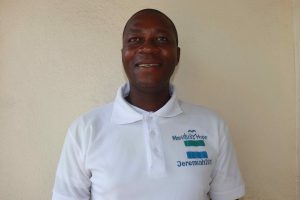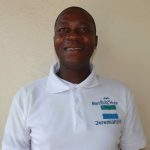At least two months of each year, the well in Mathen goes dry. But even when the well is functioning, the water it provides makes people sick. No matter the time of year, the 285 people of this community are suffering from a lack of clean, reliable water.
The well was installed nearing the end of Sierra Leone's civil wars in 2001. Since then, the well has not been monitored, maintained, or treated. And as the effects of climate change worsen and the water table lowers, the well's downtime will only lengthen without intervention.
“Variations in spatial distribution and intensity of rainfall, combined with increased surface temperatures (influencing evapotranspiration), are directly affecting the potential recharge of groundwater aquifers as well as increasing surface water precipitation.” - UNICEF
During the well's ever-extending downtime, the community members' only option is the milky, sour-smelling water from the swamp.
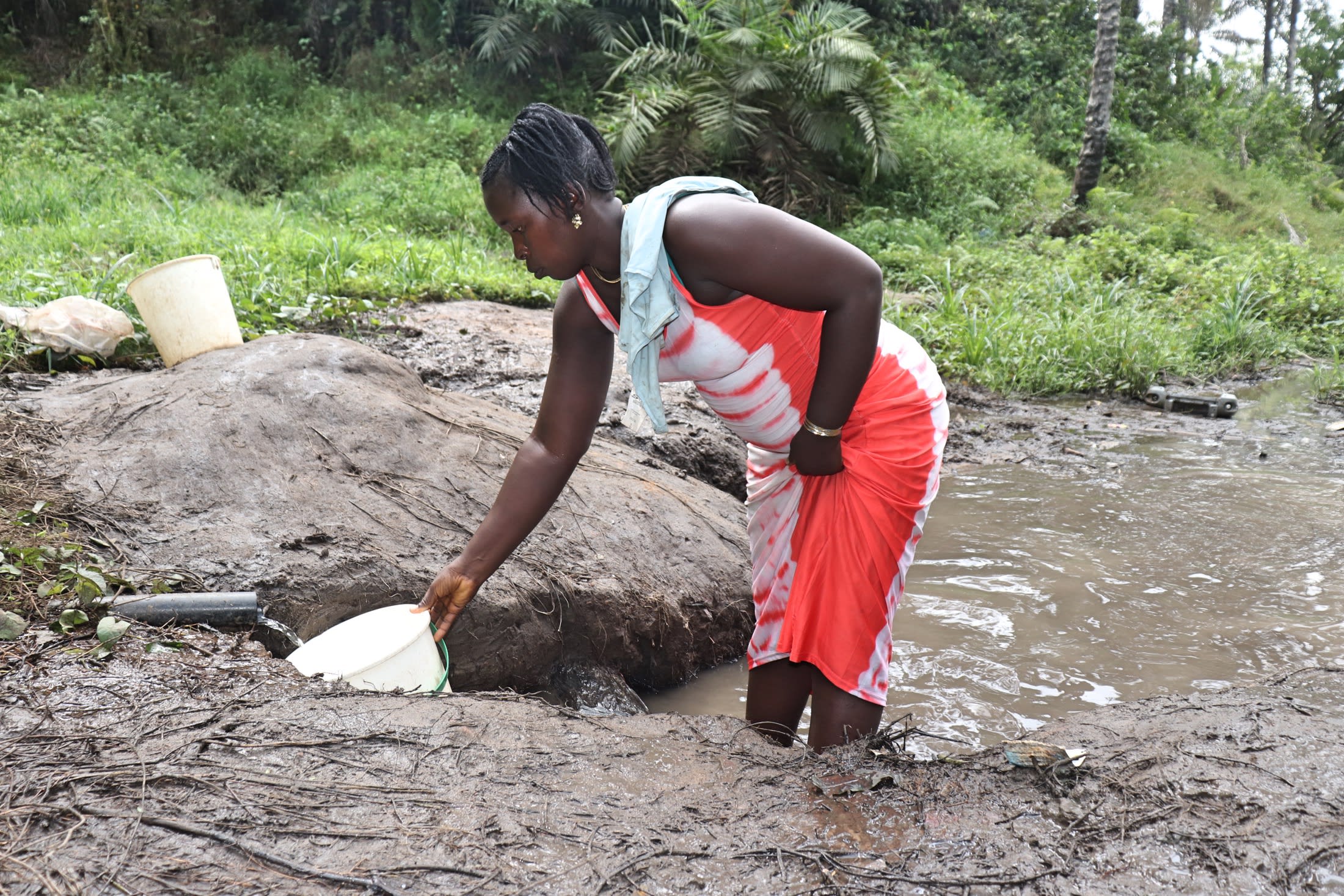
"The water situation in this community is not easy," said 41-year-old trader Mahawa Kamara (shown fetching water from the swamp above).
"Ever since the well parallel to the mosque got spoiled, it has been one difficulty [after] another. I walk a far distance to fetch water from the alternate source, which is swamp water. Fetching water from this source is time-consuming and strenuous. By the time I do two trips, I am exhausted. Also, there are times I pay youths in my area to fetch water for me to use for my domestic activities."
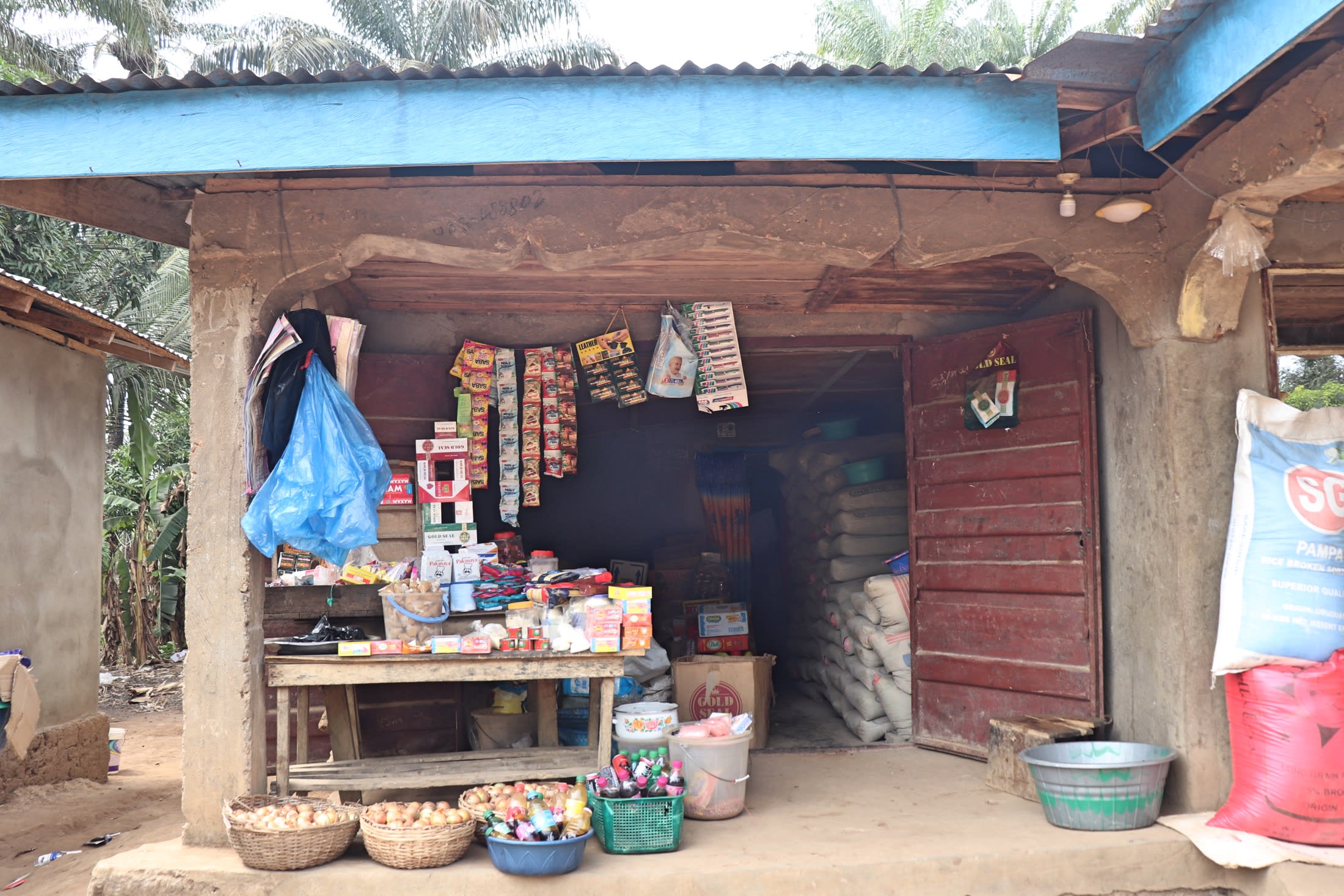
The water scarcity affects Mahawa's schedule every single day.
"I am a trader that sells lots of things such as rice, cement, sugar, cooking condiments, [and vegetables] such as garden eggs (eggplant), tomatoes, and pepper," Mahawa explained. "Without sufficient water, I will not be able to wash these items. Likewise, the water constraints make it impossible for me to complete work at home. I have [an] extended family, and sufficient water is required for washing, bathing, and other domestic work. Therefore, I do the majority of the work alone; my children often help, but cannot cover a lot of the work because they must go to school."
And she's not the only one whose daily activities rely on water. The main sources of income in Mathen are agriculture and palm oil production, both of which require a steady stream of water. Also, Mathen's community members are predominantly Muslim, and they are currently unable to perform ablutions for the prescribed five times each day due to the water shortage, which is demoralizing.
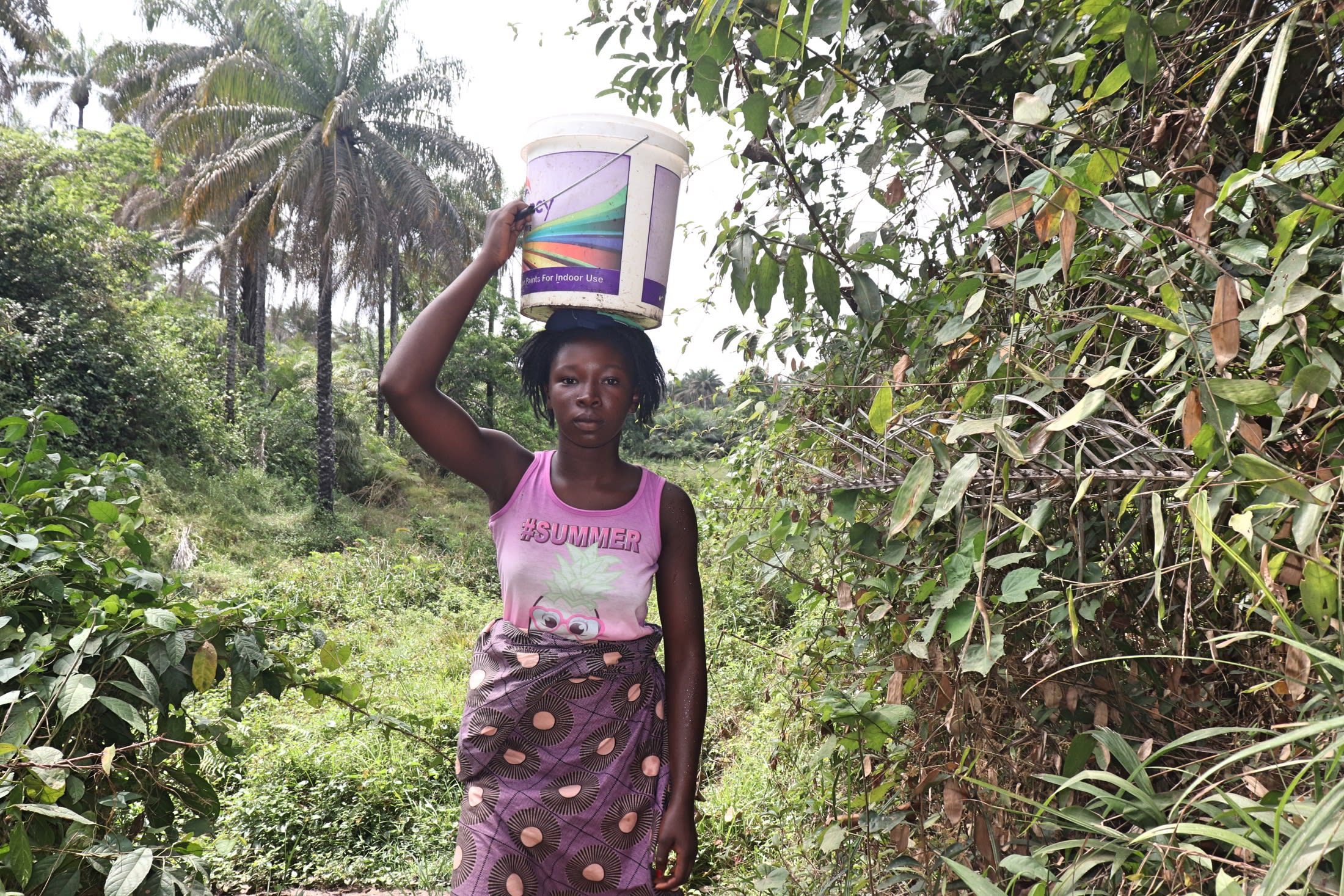
"I am a student and I need water to clean my school uniforms and house clothes," said 14-year-old Kadiatu K (shown above carrying water home from the swamp). "This must be done with enough water. Also, I am practicing the Islamic religion. I need sufficient clean water to perform [my] ablutions on time."
Although Kadiatu knows proper hygiene techniques, she is unable to put them into practice because of the water crisis.
"As a student, I was taught in school to wash my hands frequently after using the latrine or playing with harmful materials," Kadiatu said. "But I cannot practice proper handwashing because I am out of clean and sufficient water to wash my hands. I will be happy after the community well is rehabilitated. This will help [me] achieve all domestic work on time like washing dishes, cooking, and [the laundering] of clothes."
Here’s what we’re going to do about it:
Well Rehabilitation
The well marked for this overhaul is dry for a few months every year and needs major work to supply adequate, clean water to the community year round. The pump will be removed, and a hand auger will be lowered inside and powered by a drill team. This hand auger will allow the team to drill several meters deeper to hit a sufficient water column that will ensure the well supplies water throughout all seasons.
As the team drills, casing will be installed, transforming the bottom of this hand-dug well into a borehole. PVC piping will connect this lower system directly to the pump, a construction that we know will also improve the quality of water.
Once this plan is implemented, everyone within the community will have access to safe drinking water in both quality and quantity, even through the dry months.
Hygiene and Sanitation Training
There will be hygiene and sanitation training sessions offered for three days in a row.
After our visit, the hygiene and sanitation trainer decided it would be best to teach community members how to build a tippy tap (a hand-washing station built with a jerrycan, string, and sticks). They will use these tippy taps for handwashing demonstrations, and will also teach about other tools like dish racks and the importance of properly penning in animals.
These trainings will also strengthen the water user committee that manages and maintains this well. They enforce proper behavior and report to us whenever they need our help solving a serious problem, like a pump breakdown.
















